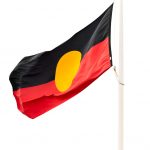The CNS Prevents Indigenous Deaths in Custody: An Interview with Gerry Georgatos

The Royal Commission into Aboriginal deaths in custody delivered its final report on April 15 1991. The commissioners made 339 recommendations concerning custody procedures, liaison with Indigenous groups and the education of police.
The 223rd recommendation was that police, Aboriginal legal services and other relevant organisations should establish protocols to ensure the Aboriginal Legal Service (ALS) is notified “when Aboriginal people are arrested or detained.”
The 224th stated that pending the establishment of such protocols it should be “mandatory for Aboriginal legal services to be notified upon the arrest or detention of any Aboriginal person.”
Since the time the report was tabled, the only two jurisdictions in Australia that have seen the full fruition of such a legal protocol has been NSW and the ACT, with the establishment of the custody notification service (CNS).
The NSW experience
In the years following the royal commission, the police commissioner’s guidelines required that police contact the ALS whenever an Indigenous person was taken into custody. However, this was not a legal requirement and compliance varied around the state.
In 1998, amendments were made to Part 10A of the Crimes Act, which made it a legal requirement for officers to notify the ALS (NSW/ACT). And since 2005, this law has been enshrined in the Law Enforcement (Powers and Responsibilities) Regulation.
The CNS is a 24 hour phone line that officers must contact immediately after taking an Aboriginal or Torres Strait Islander person into custody. A detainee is put in contact with a lawyer, who can provide legal advice, but is also trained to respond to concerns about the individual’s state of mind.
Today, the CNS helps around 15,000 First Nations people a year, which translates to about 300 calls a week. And significantly, up until last year, there had been no Aboriginal deaths in police cell custody since the program was implemented.
Protocol not followed
At around 1am on July 19 last year, Rebecca Maher was placed in a holding cell at Maitland police station. Officers reported finding the 36-year-old Wiradjuri woman dead in her cell five hours later.
NSW police have been criticised for not following procedure and contacting the CNS as soon as Ms Maher was detained. The Aboriginal Legal Service has called for an independent investigation into her death.
The push for a nationwide roll out
Currently, an online petition calling on all states and territories to establish a CNS based on the NSW model is garnering thousands of signatures. However, despite the federal government offering the initial funding to establish the services last year, state governments have been slow to accept.
Gerry Georgatos is the man behind the campaign for the CNS to be rolled out nationally. The long-time social justice campaigner and suicide prevention researcher has been championing the rights of First Nations people for years now.
Sydney Criminal Lawyers® spoke with Mr Georgatos about the urgency for all states and territories to establish a CNS, the need for the WA government to honour its promise and stop incarcerating fine defaulters, and the overrepresentation of Indigenous people in WA correctional facilities.
Firstly, Gerry, can you outline why a system like the CNS needs to be rolled out around Australia?
The recommendation from the royal commission was about immediate support and peer support. So, the custody notification service is actually even a step up from the original recommendation, which is effectively in place around most of the country.
The custody notification service ensures legal, health and welfare interventions at the earliest port of call. And that’s important in terms of psychosocial support, deescalating anxiety, reducing distress and validating people about their being supported to a positive self.
It’s a lawyer and that’s a step up even from the recommendations of the royal commission. And that lawyer is also trained up with all the skill sets in identifying suicidal ideation, identifying high or elevated levels of distress and depression, and how to go about validating an individual to reduce those levels.
How it works in NSW and the ACT is that the police, once they detain an Aboriginal or Torres Strait Islander person, must make contact with the custody notification service, which is hosted by the Aboriginal Legal Service.
The ALS is independent of police and corrective services, which is imperative – that level of independence – because it goes to transparency and to trust building and also to representing the interests of the individual, without any other potential conflicts or prejudices.
The compelling evidence is the record itself. It was effectively implemented in NSW in 1998. And much more substantively built up by 2000.
The legislation that actually gave it a sense of certainty in terms of the police making contact with the custody notification service was the Law Enforcement (Powers and Responsibilities) Regulation.
That makes any testimony secured, or even a charge sheet produced, prior to contact being made with a custody notification service advocate inadmissible. And that translates into not just contacting the service, but the custody notification advocate making direct contact with the detainee.
Where that service has been enabled it has led to the remarkable feat of zero police watch house deaths in custody of First Nations peoples in NSW and the ACT.
There is the exception of the Ms Rebecca Maher death at the Maitland police watch house. There is obviously an inquiry still standing from the NSW government as to why police on that occasion did not contact the custody notification service.
The compelling evidence is the fact that in effectively two decades of its operation it has led to zero black deaths in custody in at least police watch houses. And that speaks volumes in itself.
It also has a flow-on effect into remand. Once you’ve actually got somebody representing you legally and also with the capacity to enable your health and welfare, it does not mean that responsibility to the detainee has ended once they are no longer in that police watch house.
That representation and health and welfare engagement continues on while they are in remand.
Tragically, Ms Dhu died in police custody at South Hedland police lockup in August 2014.
Do you think if there had been a custody notification service in place in WA, Ms Dhu’s life could have been saved?
Yes. In my view had there been a custody notification advocate immediately representing the interests of Ms Dhu, I believe she more than likely would have been released from that police watch house.
There was a distress call to support her in an alleged incident that was deprioritised with a background check and the outstanding warrants for unpaid fines.
It’s not just Ms Dhu. It’s also Ms Mandijarra in Broome. I believe she would have been saved too. And Mr Phillips in Kalgoorlie, and most certainly Mr Ward when he was in the Kalgoorlie police lockup. I don’t believe that he would have been carted away in that van after. He probably would have been sent to his lands.
The highest toll of black deaths in police watch houses is Western Australia. The highest toll in terms of numbers, and also the proportion of population across the country.
You’re currently advocating for all states and territories to set up the CNS. Australian Indigenous affairs minister Nigel Scullion has called on all jurisdictions to do so. And the federal government offered funding to all states and territories to introduce the CNS more than a year ago.
So why aren’t state and territory governments heeding the call?
After Ms Dhu’s loss on August 4, I was called by both sides of the family. What I heard was abominable. But, I also saw that there were pronounced systemic failures that were easily understandable by even a lay person.
Soon after Ms Dhu’s loss, I flew to Canberra and met with Senator Scullion. I put to him the need to actually propose a custody notification service right across the country.
Western Australia needs it more than anyone else. Then thereafter the Northern Territory, then South Australia, and then Queensland.
Police watch house deaths – in that short window of time from 24 hours to 96 hours – almost 100 percent of the time, and certainly 100 percent of the time in Western Australia are of First Nations people, and predominantly are of young black lives lost in their twenties and/or in their early thirties.
Senator Scullion, the Indigenous affairs minister, got it. He understood it. And he’s championed it ever since.
I’ve been campaigning for the custody notification service as a small reform, cost-effective (not my terminology, but the terminology of all these policymakers), it puts people first and it puts an end to black deaths in custody in at least police watch houses.
It will translate profoundly for First Nations people and the sea of grief that families and communities feel. And the fact that it’s been neglected translates, rightly so, as racism.
My proposal to the minister is that it needed the Commonwealth to push it hard. It’s an indictment of our states and territories – one government after another, whatever the political persuasion – that we haven’t rolled out a simple service such as this.
The cost of a custody notification service will be less than the half a million it costs in NSW for each state and territory. And therefore, less than a coronial inquest. It’s a no-brainer.
It needed to go through COAG. It needed to be pushed.
The offer from Senator Scullion was made. But, he also saved the NSW custody notification service by paying for it from outside his portfolio. One thing he said to me was, once he understood it, that even though his colleagues may not have been supportive of it, he wasn’t going to support the poor decisions of his colleagues.
And for that, I pay him credit. His offer is as good as it gets. Picking up the tab for the first three years, on the proviso that it is akin to the NSW custody notification service with the caveat legislation that gives it certainty that police will make the first port of call contact with the service.
Having presented the campaign to Senator Scullion. I’ve also gone to the states and territories campaigning.
I worked closely with the incumbent government in Western Australia, when it was in opposition. I saw very little ability to actually engage the previous Liberal government. It was like banging your head against a brick wall.
But, at that time the McGowan-led opposition was amiable to the custody notification service.
I had a Labor powerbroker table a motion at the July 2015 state Labor conference in Western Australia for the custody notification service to be enabled once they got into government. And also, to put a halt to gaoling people for unpaid fines as a first port of call. And they voted it through unanimously.
My campaign now with the Western Australian government is a sense of urgency to speed up the keeping of that promise.
What is the reaction of police around the country to the proposal that this system be established nationwide?
Predominantly, police want to be relieved of the burden of making health and welfare judgments. I wrote in an article in the Guardian about police and members of the Western Australian police union contacting and encouraging me to campaign for the custody notification service.
In my various work, because I work for the national Indigenous Critical Response Service in suicide prevention, and in other engagements with police. I’ve found police want to be relieved of that burden.
I’ve argued for them to advocate strongly themselves. They say they can only do that internally by submission. They can’t do it externally in the public domain, because they are a government instrument.
But, I spoke to Nick Kaldas in NSW years ago. He said the rest of the nation should have it. I’ve spoken to high level police in Western Australia, and the Northern Territory, and at least to me, they were utterly supportive.
I spoke to the coroner late last year, and to her credit she included it in the eleven recommendations of the Ms Dhu inquest.
The police want it. I do believe the Hedland police should have been relieved of the burden of health and welfare judgments that they had to make. That doesn’t excuse their abominable conduct and the way they treated her, as the CCTV footage exposed.
But, they should not be put into a predicament to make judgements that experts could relieve them of. And that would have been a custody notification service. It’s not limited to just legal understandings and representations, but also ensuring, advocating and mediating towards their health and welfare interests.
And lastly, Gerry, you’re currently running an online petition to get the various state and territory leaders around Australia to wake up to the fact that they need to establish this legal protocol.
What’s the response to the petition been like so far?
This petition has been a one person effort in effect. But, it has garnered about 25,000 signatures. I find that quite significant for a petition that hasn’t been invested with funds to promote it.
Australians have the goodwill in general to see the common sense of it. Every politician that I have met has supported it. It is an indictment that they haven’t forcefully championed it.
It’s one thing to drop a media bite. But, it’s another thing to do the hard yards in the corridors of power to actually get across the line what need be got. I find it an indictment that we play with people’s lives to the point that we take our sweet time.
I commend the Western Australian government for committing to it. And finally moving it along, subsequent the campaigning. There are certainly instances that would have benefited from a custody notification service being in place.
There’s been a number of instances that have highlighted people being arrested in similar circumstances to Ms Dhu. Some of them got released. The only reason I was able to highlight them was that I knew of them.
For each individual, I’ve been able to support, highlight in the media, champion their cause and secure their release, or ensure that they weren’t locked up. These have been single mothers with young children. But, there have been many, many more that have been arrested that we don’t know about.
One woman was arrested with five children after putting out a distress call to police for an alleged incident. She finished up in Melaleuca prison on $3,900 in fines, predominantly one for an unregistered dog. She was the only possible carer for her children.
I was talking to Melaleuca prison that day and trying to reach her. But, they mentioned that seven or eight others had to come in, so we had to provide a name and ID.
Those seven or eight others who had been arrested and brought in, I don’t know their names. And without a custody notification service, there’s no certainty that the Aboriginal legal services, and/or others with the capacity to do anything, know about them.
We’ve got to understand the prison population in Western Australia has risen in the last two years from 5,200 to over 7,000. Many of them are unsentenced prisoners, such as individuals who are taken into custody with the punitive measure of $250 a day to wipe their slates clean of unpaid fines.
Eighteen percent of the prison population in Western Australia comprises of individuals who are locked up for these unpaid fines. And a significant proportion, almost one in six, are Aboriginal or Torres Strait Islander women, and predominately single mothers.
Yesterday, there was a story about a 23-year-old mother. She is 37 weeks pregnant. She is due any day. And she has a 16-month-old baby boy. She’s a single mum.
She has $4,123.45 outstanding for eleven traffic fines. She has never been to prison, and has never cited a prison. She has no criminal history.
But, they wanted her to either pay immediately $1,000 towards the fines, or do six days in prison to wipe off a substantial amount of that fine to bring it below the threshold.
That’s not just on. She’s a single mum that should not be giving birth to her child in prison.
One in six Aboriginal and Torres Strait Islander people in Western Australia have been to prison. The last thing we should be doing is sending more to prison, and sending a message to people that prison is some form of option for a civil matter.
In the end, my experience is, all these people who have unpaid fines are people living below the poverty line. The aggregation of these fines is so substantive, and some from the very beginning are so substantive, that they can be 25 percent of a single mum’s parenting pension annual income.
The other argument I have with unpaid fines is that no model across the country is good enough. But, at least no other state or territory is making the first port of call arrest and gaoling individuals to pay off these fines. It’s only Western Australia.
If we want a genuine fine repayment plan in all instances they should assess the fines in terms of people’s income, and reduced with that. And some should be aged and retired retrospectively.
So, they don’t become discriminatory. So, they don’t disadvantage people to the point that they have no capacity to pay them. So, they don’t also translate as racist because of the disproportionate impact on Aboriginal and Torres Strait Islander people.
So, we don’t have a classist society, disadvantaging and discriminating against the poor.
And there are comparative models. That has been done in some Scandinavian countries.
Gerry thanks very much for taking the time out to have this chat with us.
Thank you.







